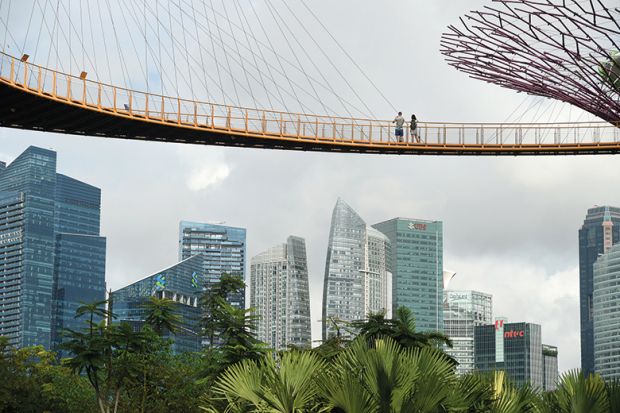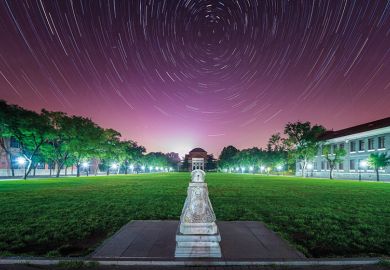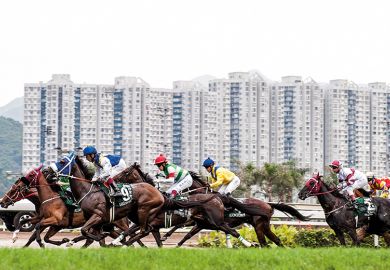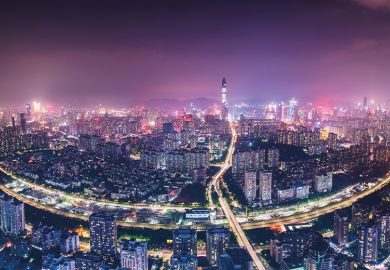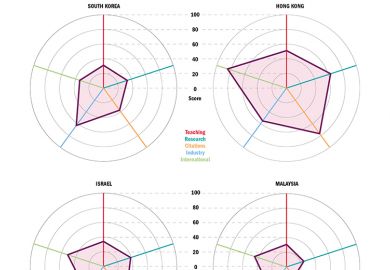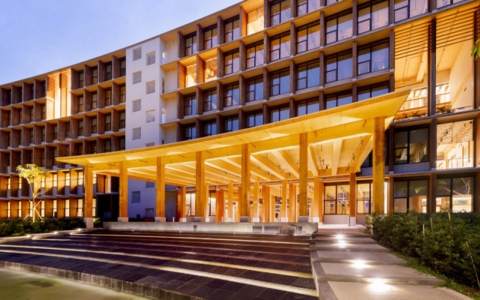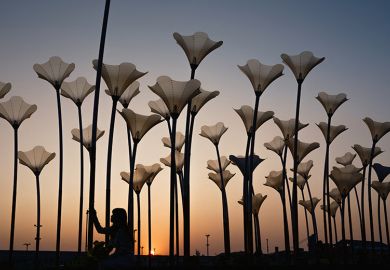Browse the full Asia University Rankings 2018 results
The remarkable city state of Singapore is informally known as the “little red dot”, and this tiny nation has had a spectacular journey in just over five decades. For more than half that period, I have had the privilege of observing and participating in its phenomenal rise as a major global player and as a hub for education, research and innovation.
What Singapore and Nanyang Technological University, Singapore have been able to accomplish in their relatively short existence is impressive by any measure. As the new president of NTU, I am also very optimistic about their future for further growth and global impact.
Given its lack of natural resources and small size, Singapore has had to be relevant, competitive and impactful in order to survive. This has meant using its brains, connecting with the world, embracing technology and investing in its people. These core principles still hold true today, as Singapore transforms into a global hub for innovation and a “Smart Nation”.
Today, Singapore with a population of only 5.6 million is consistently ranked among the top countries in the world on a wide variety of measures: it is fourth in the world for gross domestic product per capita based on purchasing-power parity (a measure of wealth); sixth in the world and the only nation in Asia in the top 10 as measured by the United Nations’ Human Development Index (a measure of equality and opportunity); and seventh in The Global Innovation Index 2017 (a measure of translating research into economic opportunity).
With the rapid growth of its research universities and innovation ecosystem and its attractiveness as a destination for multinational companies, Singapore has made steady progress in its quest to become an innovation powerhouse.
Singapore’s rapid transformation from Third World nation to First World one in a generation would not have happened without a determined and steady investment in high-quality education since its independence in 1965.
Today, its education system – where all teachers are trained at NTU’s National Institute of Education – is globally recognised as one of the world’s best. Its students have consistently come out top in the Programme for International Student Assessment (Pisa) and the Trends in International Mathematics and Science Study (TIMSS) rankings.
Beyond the secondary education system, the government recognises the importance of Singapore being at the forefront of research and innovation in order to compete with much bigger countries in Asia and elsewhere.
In my various advisory roles with different organisations in Singapore, I have had the privilege of witnessing the inception of the National Research Foundation and Agency for Science, Technology and Research (A*STAR) and to participate in the transformation of the major universities into autonomous entities and globally recognised research universities.
I was fortunate to have the opportunity to work closely with dozens of faculty members, students and researchers from many institutions in Singapore over the past two decades and this work has produced new educational programmes, policy developments and dozens of scholarly research articles.
At the Massachusetts Institute of Technology, I led the formation of the Singapore-MIT Alliance for Research and Technology, the first centre under the NRF’s Campus for Research Excellence and Technological Enterprise, another important Singaporean initiative for research and innovation.
This campus is now also home to research centres from ETH Zurich – Swiss Federal Institute of Technology Zurich, the University of Cambridge, the University of California, Berkeley, the Technical University of Munich, the Weizmann Institute of Science and the Hebrew University of Jerusalem, all of which have strong collaborations with NTU. These collaborations have yielded a number of world-leading research programmes with a significant impact on Singapore and the world.
The Research, Innovation and Enterprise Council, chaired by the prime minister, is a key catalyst for Singapore’s transformation into an innovation-driven economy. The Singaporean government is investing S$19.1 billion (£10.6 billion) for the Research, Innovation and Enterprise 2020 Plan from 2016 to 2020.
This is its biggest budget to date, and S$4 billion (18 per cent) more than the amount spent from 2011 to 2015. This sum also makes Singapore the world’s top investor in research and development per capita.
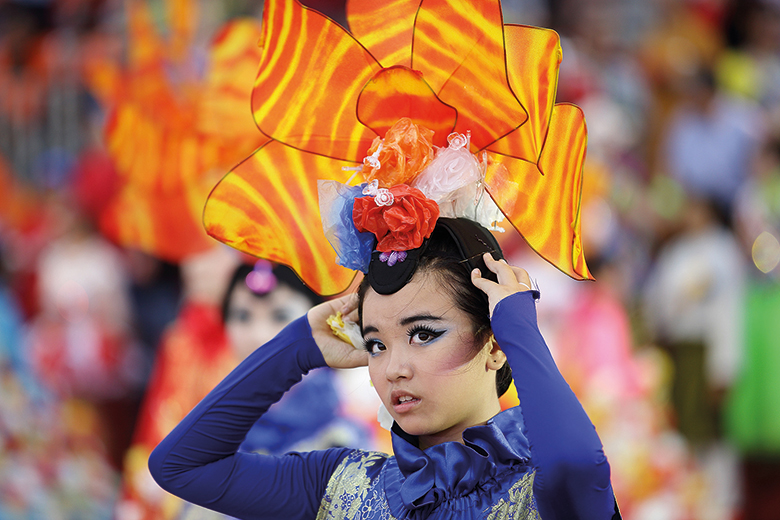
Singapore also provides researchers with state-of-the-art facilities and space to grow and develop their projects. NTU has used these public investments in education and research to become a globally recognised university in only a few decades.
External competitive research funding awarded to NTU has increased sixfold in the past 10 years to more than S$600 million in the current fiscal year. In addition to scientific discoveries and intellectual property creation, the research of NTU faculty and students has also led to the formation of a number of Corporate Labs on our campus, under a scheme nurtured by the government.
NTU has established five such Corporate Labs over the past several years in partnership with, and receiving funding from, Rolls-Royce, ST Engineering, SMRT Corporation, Delta Electronics and, most recently, Singtel, Singapore’s largest communications company.
NTU’s sprawling 500-acre campus is not only frequently ranked among the top 15 most beautiful in the world, it is also one of the most environmentally sustainable campuses with 54 Green Mark buildings (equivalent to Leadership in Energy and Environmental Design-certified buildings in the US).
In a short span of time, NTU has moved up a number of international indices to be ranked in the top five by Times Higher Education in the THE Asia and Young university rankings.
It is also second behind Microsoft in a ranking of sources of the most frequently cited research papers in the artificial intelligence field by Nikkei and Elsevier, while in the fifth Nature Index in 2017 NTU ranked 35th in the world, seventh in Asia and first in Singapore based on its number of research papers in a select group of high-quality research publications.
These achievements have enabled NTU to attract highly talented students and scholars from across the world who are prominent in their fields of study. They bring geographical and cultural diversity to research and education.
Download a copy of the Asia University Rankings 2018 digital supplement
This openness in embracing international talent has made NTU and Singapore what they are today – great places not only for business but also for science and innovation.
NTU students, faculty and researchers are also well plugged into the start-up community ecosystem in Singapore.
As a young university, NTU has not just made waves in research and education. It is enabling a new generation, driven by innovations in Asia and across the globe.
Singapore has big and bold ambitions to be a Smart Nation, and NTU is a major participant in this drive by providing a number of test beds for innovation, where the applications of emerging technologies can be studied and tested. It is my goal to nurture groundbreaking research and innovations from Singapore that will be beneficial to the local and global communities.
As the impact of the fourth industrial revolution is fully realised in the coming years and decades, change will occur at an even more rapid pace. The global economy is led by those who innovate – imagine, create or reinvent products and services – faster than their competitors.
Nations, companies – and indeed, universities – that can change and adapt to the fastmoving global environment will be the ones that survive and thrive.
With its recognised expertise in areas such as artificial intelligence, data science, health sciences, deep analytics, 3D printing, robotics, humanities, social sciences, business, entrepreneurship, as well as environmental sciences, NTU is strongly positioned to influence how technology will benefit humanity.
Commitment to excellence and the agility to translate scientific discoveries into innovation continue to position NTU well on its journey in transforming lives at the intersection of technology and human need.
Subra Suresh is president of Nanyang Technological University, Singapore.
Watch our video of the 2018 results
POSTSCRIPT:
Print headline: Small wonder
Register to continue
Why register?
- Registration is free and only takes a moment
- Once registered, you can read 3 articles a month
- Sign up for our newsletter
Subscribe
Or subscribe for unlimited access to:
- Unlimited access to news, views, insights & reviews
- Digital editions
- Digital access to THE’s university and college rankings analysis
Already registered or a current subscriber?
